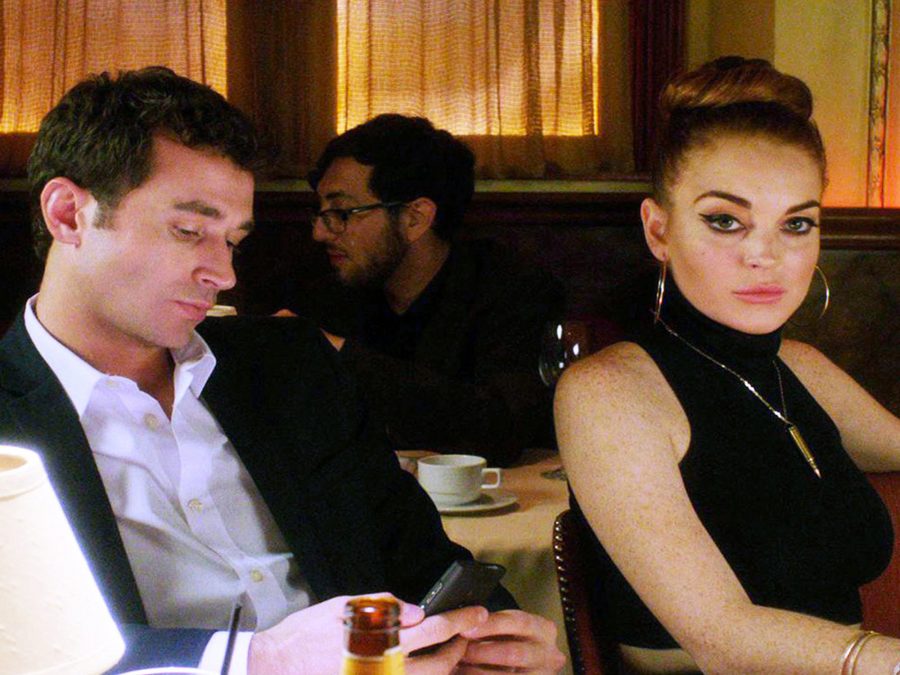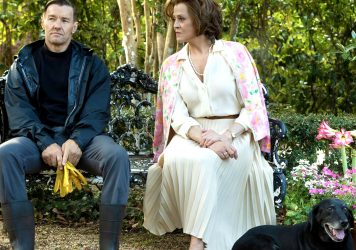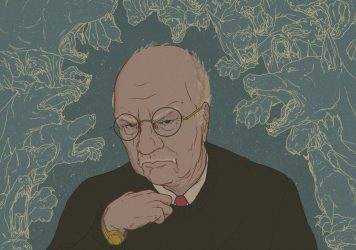
“It’s a cold, dead film about cold, dead people” is how Bret Easton Ellis described The Canyons at a press conference during the 70th Venice International Film Festival. Earlier that year, it had been rejected by Sundance, though the second of the two festivals to reject the film – South by Southwest – was perhaps more elaborate in their rejection of the film, claiming it suffered from “quality issues” and that it had “an ugliness and deadness to it”. This was merely part of an endless torrent of media detritus that plagued the film before it even received a theatrical release.
After all, why wouldn’t it be provocative? Schrader’s first film since Adam Resurrected, The Canyons placed a seminal American director-screenwriter in the position of having to fund his eighteenth feature via Kickstarter. Paired with Ellis as screenwriter, the guerilla approach to casting led to Hollywood’s prescribed enfant terrible Lindsay Lohan and adult film star James Deen, along with a cast of relative amateurs and Gus Van Sant, being cast as the leads in a film written and directed by two of America’s foremost poets of urban ennui and violent machismo.
Its reputation precedes it, and yet if one peers beyond the veneer of disrepute that rendered The Canyons a disaster in just about every respect, what reveals itself is a late-period work so calculatedly icy in its exteriors and repugnant in its proceedings that it seemed destined for failure. As with much of Ellis’ work, The Canyons follows, through even their most mundane stretches, the lives of obscenely wealthy socialites, whose solipsism clouds their judgement until there’s nothing left to hold onto. To a filmmaker whose characters are as piercingly solipsistic as Schrader, Ellis’ menagerie of the moneyed might seem a perfect fit.
In practice, the unification of Schrader and Ellis results in an eerie disconnect that lends The Canyons’ images a degree of uncanniness. The rigorous moral paradigms and code of ethics that encase the archetypal Schraderian protagonist are superseded here by their conspicuous absence, instead giving way to a cannibalization of excess.
The two listless figures around whom the loose semblance of a plot revolves, Tara (Lohan) and Christian (Deen), are less human beings than they are hollow vessels for the superimposition of genre upon a palette of vacuity. They drift across non-places that seem to exist only for a matter of moments, illuminated by blindingly bright bloom lighting, until these spaces recede into anonymity. For a film so ostensibly rooted in the ruthlessness of the industry that defines LA, it seems remarkably dismissive towards any attempt to ground itself in its surroundings, instead choosing to manifest in the form of rendering every space one of performativity.
Take the film’s opening, where Tara and Christian resign themselves to the act of having to relinquish part of their plentiful time to dining with a rookie actor, Ryan, and his partner Gina. Shot-reverse shot, the 360 degree rule, even the mere concept of facial expressions as reactions – all of these conventions are shattered in The Canyons’ opening minutes, as diatribes and mantras are exchanged with no end in sight except for the restlessness of its vampiric protagonists.

Traversing through the concrete deserts of strip malls and featureless mansions is Lohan’s Tara, who strikes a sharp contrast to the Schraderian protagonist not only because of an absence of the distinctly masculine reservation characterizing this archetype, but because she is as much a subject of the commercial panopticon as she is an enforcer of it. Much of what binds Tara and Christian’s passionless relationship together is the orchestration of performances that they engage in nearly every night, whereby they invite couples (and, as in the film, lonely young men) over to their mansion- often for the sole purpose of transforming themselves into voyeuristic spectacle, not unlike American Gigolo’s titular escort Julian.
What differentiates Tara and Christian from Gere’s rendition of a God’s Lonely Man is the apparent absence of any interiority, not just in themselves but in their surroundings. Silently shuffling through Foucaldian prisons, composed of stark white walls and furnishings that wouldn’t look out of place in the Tate Modern, Tara cannot afford the luxury of the code of ethics that allows the Schraderian protagonist to live a life of asceticism, nor does she have anywhere to retreat to.
She is ontologically unmoored, with Schrader’s lens constantly attempting to sequester her within spaces where, if only for a moment, she can escape the sensation of glares piercing her skin – that of suspicion from Christian, and of envy from blinded by the glint of a pearl necklace. Only when she deviates from the script imposed upon her, then, is she able to slip out of the shackles of performance.
Fundamentally altering the positions of power that The Canyons’ occupants exist within is a tryst between Tara, Christian and an unnamed couple. Basked under a whirlwind of fluorescent strobes, the flickering of green and red across the listless faces of this ritual’s participants (a motif Schrader used to similar effect in The Card Counter and Master Gardener) signal the shift of the objectified to the orchestrator, as Tara employs the instrument of seduction that renders her an object to place Christian, for once in his life, in a position of powerlessness. In a counseling session with an equally disaffected therapist, played by Gus Van Sant, Christian confesses to feeling emasculated: “It made me feel like an actor.”
Once the film’s thesis on the universality of performance is verbalized as an admission of the collapse of gendered ego, then, there seems to be no direction to go except a framework of well-worn images: the woman liberated, an unsolved murder and an all-too familiar stranger on the other side a phone. No matter how much one tries to direct their own narratives in the epoch of the image, The Canyons asserts, there’s always someone else pulling the strings, making it impossible to extricate oneself from the erosion of self enabled by late capitalism.
Published 8 Nov 2022

Joel Edgerton plays a horticulturist with a troubled past in Paul Schrader's beautiful but underwhelming drama.

By Matt Thrift
The veteran Hollywood maverick talks Dog Eat Dog, Scorsese and the challenges of modern moviemaking.

By Sam Moore
The producer of The Canyons and The Card Counter reflects on his experience working with one of Hollywood’s most outspoken auteurs.